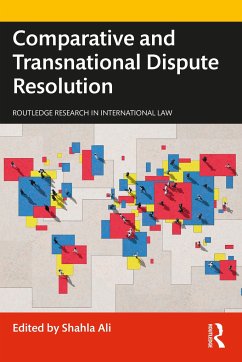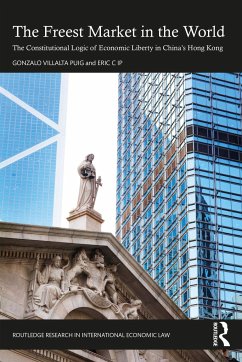
Contract Law in Changing Times
Asian Perspectives on Pacta Sunt Servanda
Herausgegeben: Witzleb, Normann

PAYBACK Punkte
22 °P sammeln!
This collection of essays provides a rich and contemporary discussion of the principle of pacta sunt servanda. This principle, which requires that valid agreements are to be honoured, is a cornerstone of contract law. Focusing on contributions from Asia, this book shows that, despite its natural and universal appeal, the pacta sunt servanda principle is neither absolute nor immutable. Exceptions to the binding force of contract must be available in limited circumstances to avoid hardship and unfairness.This book offers readers new comparative perspectives on the appropriate balance between con...
This collection of essays provides a rich and contemporary discussion of the principle of pacta sunt servanda. This principle, which requires that valid agreements are to be honoured, is a cornerstone of contract law. Focusing on contributions from Asia, this book shows that, despite its natural and universal appeal, the pacta sunt servanda principle is neither absolute nor immutable. Exceptions to the binding force of contract must be available in limited circumstances to avoid hardship and unfairness.
This book offers readers new comparative perspectives on the appropriate balance between contractual certainty and flexibility in an era of social instability. Expert authors, mostly from East and Southeast Asia, explore when their domestic legal systems allow exceptions from the binding force of contracts. Doctrines discussed include impossibility, frustration, change of circumstance, force majeure, illegality as well as rights of withdrawal. Other chapters consider the importance of the pacta principle in international law. The challenges posed by the COVID-19 pandemic feature strongly in the majority of contributions.
This book offers readers new comparative perspectives on the appropriate balance between contractual certainty and flexibility in an era of social instability. Expert authors, mostly from East and Southeast Asia, explore when their domestic legal systems allow exceptions from the binding force of contracts. Doctrines discussed include impossibility, frustration, change of circumstance, force majeure, illegality as well as rights of withdrawal. Other chapters consider the importance of the pacta principle in international law. The challenges posed by the COVID-19 pandemic feature strongly in the majority of contributions.














